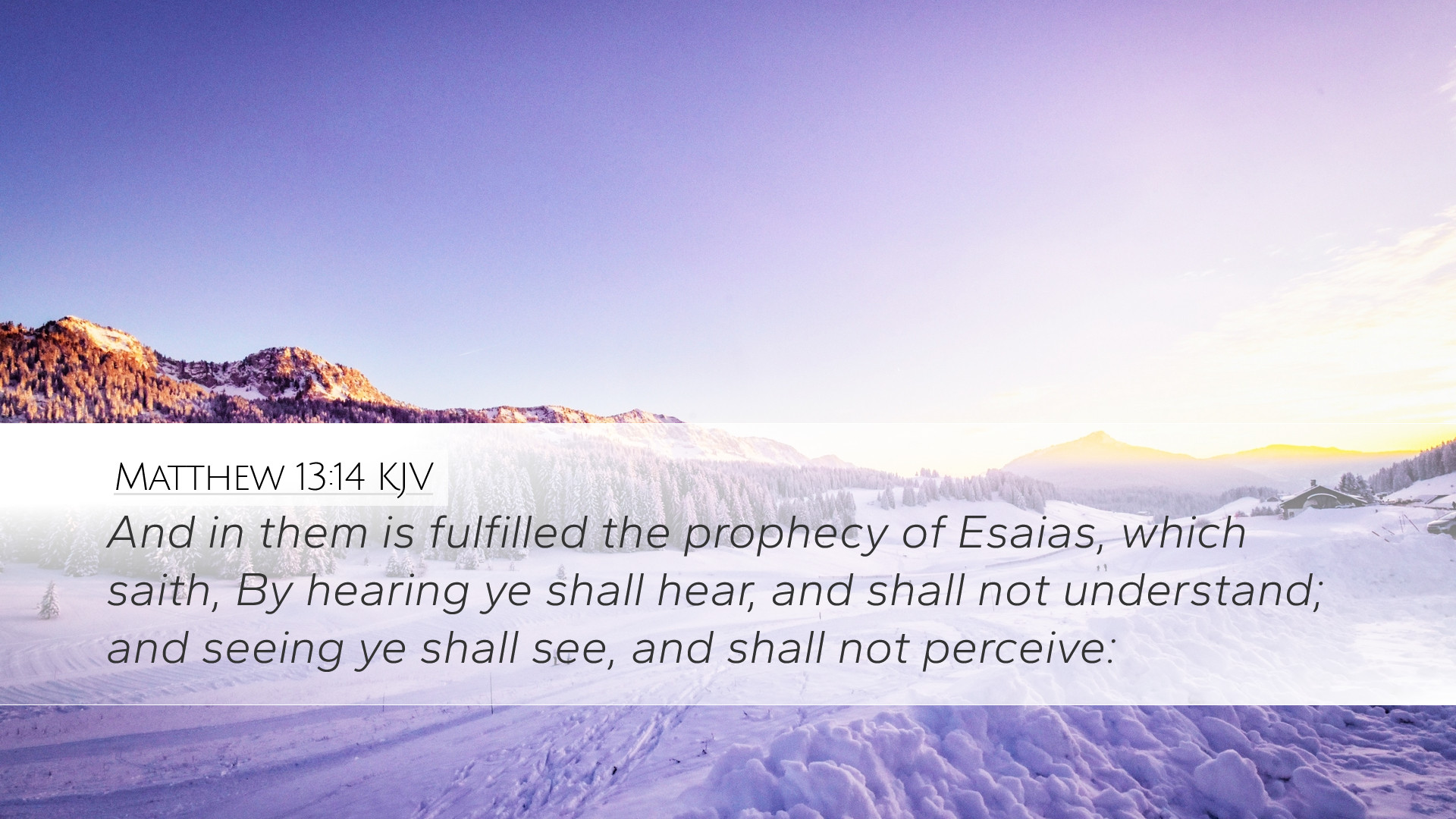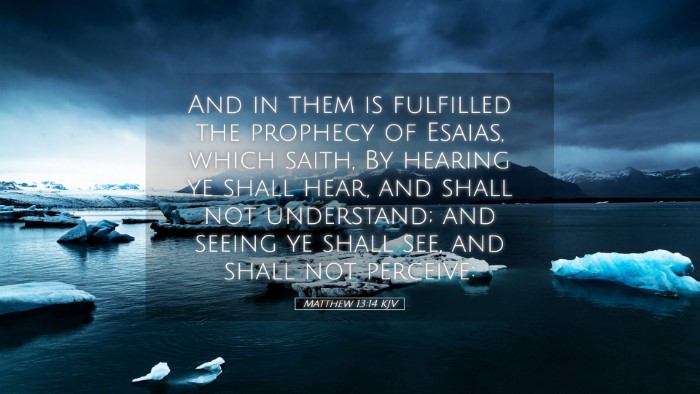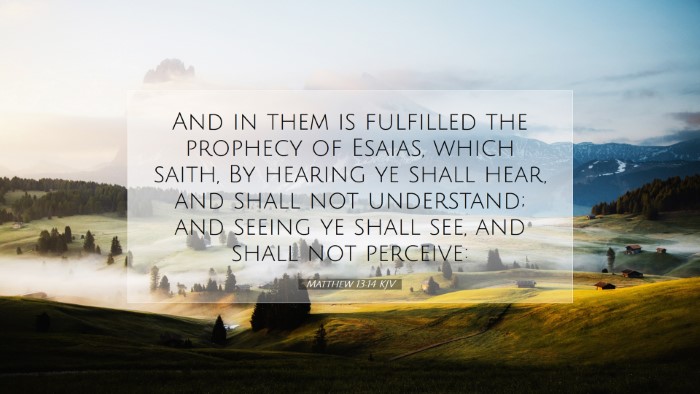Commentary on Matthew 13:14
Bible Verse: "And in them is fulfilled the prophecy of Isaiah, which saith, By hearing ye shall hear, and shall not understand; and seeing ye shall see, and shall not perceive."
Introduction
This verse forms part of a larger discourse where Jesus explains the nature of His teaching and the obstacles before the spiritually blind. Understanding Matthew 13:14 requires a thoughtful engagement with both the context and the prophecies it fulfills.
Contextual Overview
The chapter begins with Jesus teaching in parables, where He explains why He speaks to the people in this manner (Matthew 13:10-13). The use of parables serves both to reveal and obscure the truth. This duality acts as a filter, separating those who with sincere hearts seek understanding from those who do not.
Insights from Public Domain Commentaries
Matthew Henry's Commentary
Matthew Henry emphasizes that the fulfillment of Isaiah's prophecy points to the condition of the Jewish heart - they are dull and hardened. The prophecy suggests that mere physical sight and hearing do not guarantee understanding. Henry illustrates that indifference to the message of God leads to a spiritual blindness, and this occurs when people hear without commitment to respond.
Albert Barnes' Notes on the Bible
Barnes elaborates on the quotations from Isaiah, emphasizing the completeness of the fulfillment in Christ's ministry. He refers to Isaiah 6:9-10 and notes that the prophecy underscores the consequences of sin and rebellion against God. The hardened state of Israel, as described by Barnes, is due to their unwillingness to receive God's message, leading them into deeper darkness. This passage serves as a warning against complacency in spiritual matters.
Adam Clarke's Commentary
Clarke discusses the importance of the heart in receiving God's truth. He connects the inability to understand with a heart not aligned with God’s will. Clarke points out that understanding is granted to those who humbly seek God’s truth, while those who are filled with their own preconceived notions and pride are shut off from divine revelation. He encourages believers to approach God with a teachable spirit, as understanding is not solely dependent on intellectual capacity but also on spiritual receptivity.
Theological Reflections
The passage forces a theological reflection on the nature of divine communication. The use of parables signifies that God can hide truths as well as reveal them, a concept that invites further exploration into the reasons behind divine concealment. It tests the heart’s posture toward God’s revelations and invites communities of faith to consider their own responsiveness to God’s Word.
Application for Contemporary Believers
-
Self-Examination: Believers are called to critically assess their own spiritual state. Are we hearing the Word but not responding? This verse challenges us to seek true understanding and to be aware of potential spiritual blindness.
-
Importance of Discipleship: Teaching and discipleship must encourage deeper engagements with scripture. It’s not enough to hear or see; application and transformation are vital.
-
Engagement with Scripture: Regular study of Scripture in community settings can enhance understanding. Group study allows different perspectives and can prevent isolation in misunderstanding.
-
Prayer for Understanding: A constant prayer for illumination by the Holy Spirit is essential. Acknowledging our dependency on God for insight can counteract pride that often results in misunderstanding.
Conclusion
The richness of Matthew 13:14 calls for deeper reflection on how we engage with God’s Word. Through the insights of various commentators, it becomes clear that the heart’s condition dictates understanding and discernment. This verse serves as a powerful reminder to approach God not only with our minds but with our hearts open to His truths, ready to respond and share the gospel with a world enveloped in spiritual blindness.


